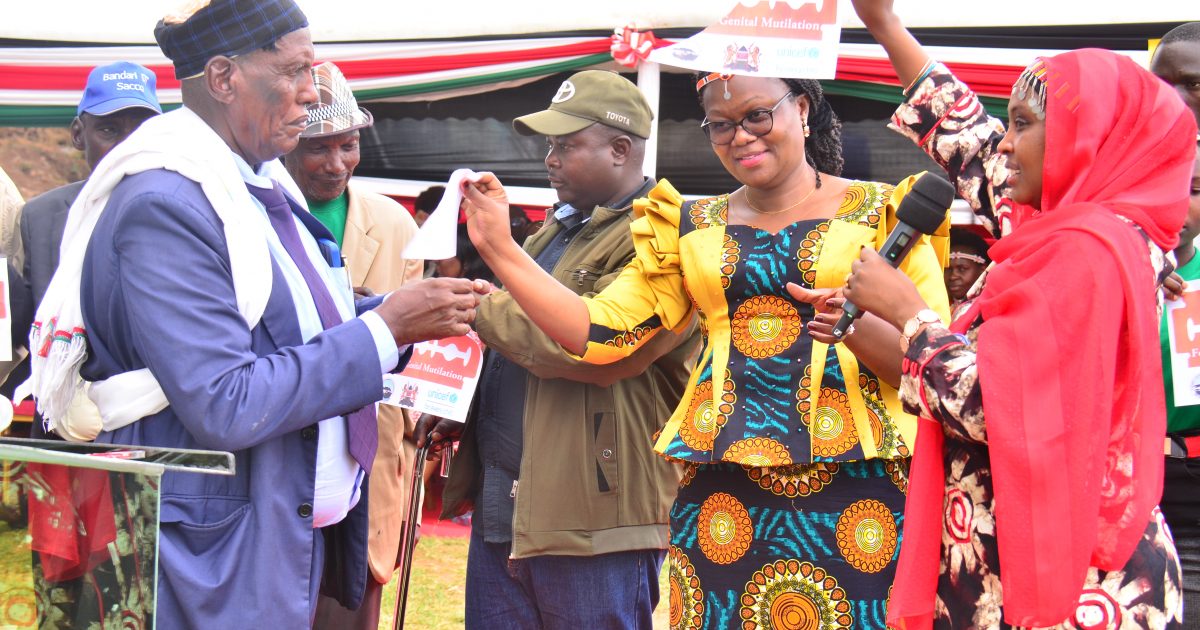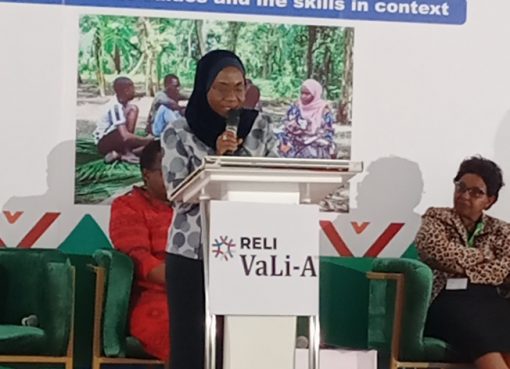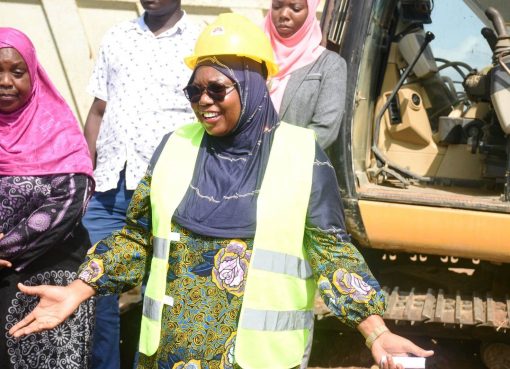Closure of schools for the December holiday break in Kuria region has always been clouded with negative connotation of Female Genital Mutilation (FGM).
As majority of the Kenyans eagerly await for the December holiday celebrations, the Kuria community will be faced with the task of ensuring they defend the rights of school going girls against the retrogressive vice of FGM.
Migori County and the national government together with both the International and local organisations like United Nations Children’s Fund, Network for Adolescents and Youth of Africa (NAYA) and Tunaweza Empowerment Organisation (TEC) have launched a programme dubbed “Catalysing Whole Community Response (CWCR) for abandonment of FGM’.
According to Migori County Governor’s Spouse Agnes Ochilo, the CWCR project will aim to put in place fresh strategies in the fight against the retrogressive vice.
Agnes said that the project will work closely with “Kambi ya wasichana initiative” to ensure that girls and women affected by the annual backward cultural practices are kept safely in safe houses across the Kuria region.
Kambi ya Wasichana is a county initiative that trains and educates girls especially in Kuria Sub Counties to be the Anti-FGM ambassadors and voice to their peers and community in advocating for their rights in ending worsening cultures and traditions.
She emphasised that initial strategies in ending FGM has had little impact in eradiating FGM and it was important to embrace new tailored approaches in the fight against FGM.
Initially, Migori County in partnership with the national government and local organisations have engaged Kuria elders and the women circumcisers with little outcome in the fight against the vice.
According to the National Syndemic Diseases Control Council (NACC) FGM has propelled health complications among pregnant women as well as contributing to HIV prevalence and new infection among teenagers.
Migori County Executive Committee Member (CECM) for Education, Gender and Culture Ms. Rahab Robi said that the project will play a vital role in curbing cross border FGM.
Rahab said that the project aims at escalating the fight to the borders of Isebania and Sirare along Kenya-Tanzania to address the safety of teenage girls.
The Network for Adolescents and Youth of Africa (NAYA) Programme Officer Ricky Ngere acknowledged that the CWCR project will aims to curb the triple threats that include; teenage pregnancy and early marriage, HIV prevalence and FGM that have become the biggest hindrances to the growth and development to the Migori girls.
Ngere disclosed that efforts to include the Tanzania counterparts especially in Tarime and Rorya regions are already underway.
“This project will be escalated to ensure that all the stakeholders are fully involved in the advocacy process both in Kenya and Tanzania”, noted Ngere.
On his part, Kuria West Sub County Children’s Officer John Omondi said that in 2022, the children department received 600 cases of children threatened with the cut forcing majority of them to flee to safe spaces across the four Kuria Sub Counties.
“We have several cases of FGM perpetrators at Kehancha Law Courts and we hope the cases will act as a deter to any person that may be thinking to engaging in the negative vice”, said Omondi.
Omondi assured that his department will ensure the project is actualised to protect the rights and health of the Kuria girls.
In August this year, Migori County hosted Governors spouses across the six counties that include: Kajiado, Narok, West Pokot, Marsabit, Nyamira and Taita Taveta that still practice FGM to deliberate, benchmark and share ideas on how based to end the retrogressive FGM vice.
By Geoffrey Makokha




